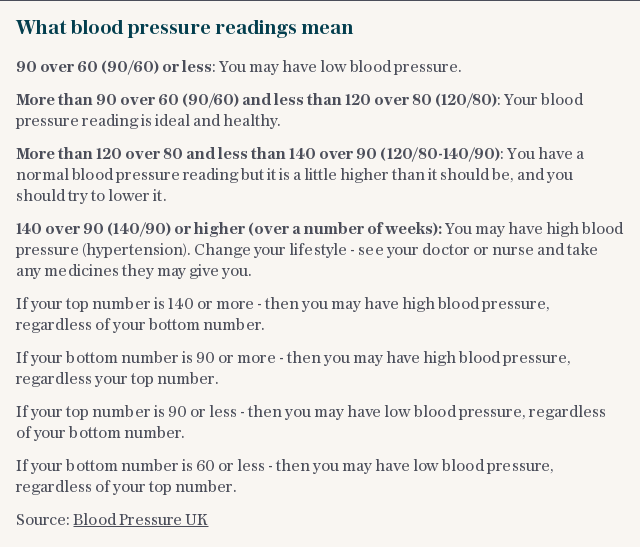Genetic blood pressure screening moves closer as biggest ever study finds inherited risks

Hundreds of new gene regions which are linked to high blood pressure have been found by scientists leading hopes that in future those most at risk could be screened.
The British-led global study, which used DNA samples from more than one million people, is the biggest ever conducted and increases the number of known genetic factors linked to hypertension to more than 1,0000.
Understanding the genetic causes of high blood pressure could potentially prevent thousands of heart attacks and strokes in the UK each year, according to the British Heart Foundation.
Lead researcher Professor Mark Caulfield, from Queen Mary, University of London, said: “This is the most major advance in blood pressure genetics to date.
“We now know that there are over 1,000 genetic signals which influence our blood pressure.
"With this information, we could calculate a person's genetic risk score for high blood pressure in later life.”

If people were found to have genetic links to high blood pressure doctors could advise early interventions such as losing weight, increasing exercise or reducing exercise consumption to stave off a heart attack or stroke.
As many as seven million people in Britain are believed to be living with undiagnosed high blood pressure, unaware of their condition.
High blood pressure was responsible for an estimated 7.8 million deaths worldwide in 2015.
More than a quarter of adults in England - around 12.5 million people - are thought to be affected by hypertension.
The new study found that known genetic variants more than tripled the risk of hypertension and increased the likelihood of poor heart outcomes by 52 per cent.
Professor Jeremy Pearson, associate medical director at the British Heart Foundation, said: "Having high blood pressure puts you at significantly higher risk of having a heart attack or stroke.
"Lifestyle factors like not doing enough exercise, being overweight or regularly drinking too much can cause high blood pressure. However, our genes can also play a major role. “Unfortunately some people simply draw the genetic short straw and must work harder to stay healthy.
"Knowing which genes cause high blood pressure may help us to spot the people who are at risk, before the damage is done. Those at risk can be treated - either with medication or lifestyle changes - potentially preventing thousands of heart attacks and strokes every year."
The study was published in the journal Nature Genetics.

 Yahoo News
Yahoo News 
